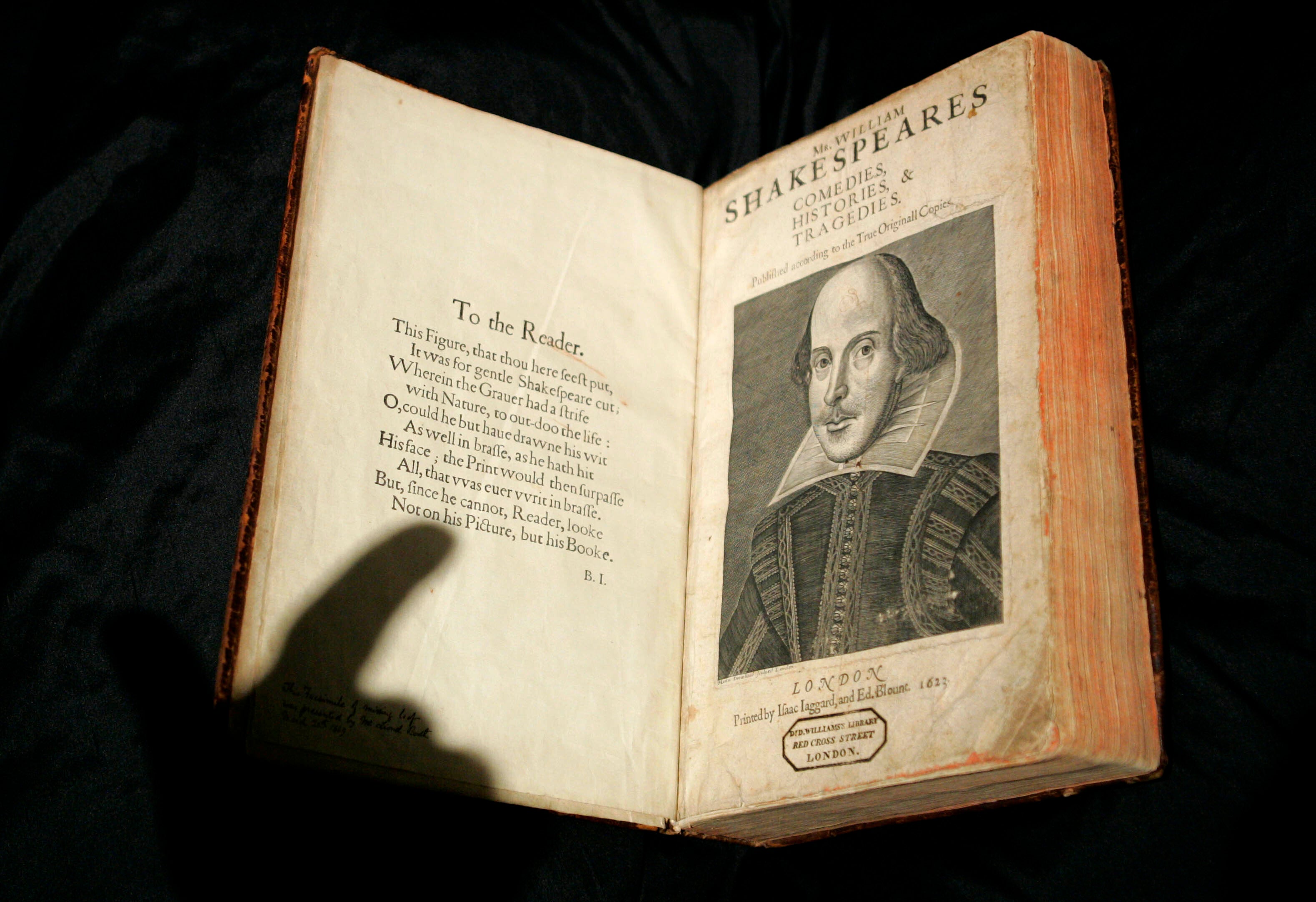Mea Culpa: he looketh up some archaic English word endings
Our resident pedant John Rentoul casts his eye over the past week’s Independent coverage


We opined last weekend on the allegation of cronyism in some of the new government’s civil service appointments. “The Tories doth protest too much, methinks,” wrote our commentator.
Thanks to Gavin Turner for pointing out that we had our Shakespearean grammar in a twist. The original is “the lady doth protest too much”: Queen Gertrude is unconvinced by the overacting of a character in the play within a play in Hamlet.
“Doth” is old-fashioned English for “does”. It is a shortening of “doeth”, the “–eth” ending being an old form of the third-person singular present indicative (I had to look that up), preserved in things such as the King James Bible – sitteth and hopeth and so on – but replaced in modern English by “–s” or “–es”.
So our reworking of the quotation said “the Tories does protest too much”, which is not right. As the old-fashioned form of “do” is “do”, we changed it to: “The Tories do protest too much, methinks.”
Missed target: In an article about “copycat” wines, we said that “they can help consumers hone in on what tastes they actually enjoy”. This is a confusion of two words that sound similar: we meant “home in”, meaning “close in (on a target)”. The word “hone” means “sharpen” (a blade), which is why we have phrases such as honing your skills. “Hone in” makes no sense, but was becoming quite common a few years ago. Now it seems to be fading out. This is the first time I have seen it for a while.
Urgent message: In an article about Pavel Durov, the co-owner of the Telegram internet messaging service who has been arrested in France, we said that, “with his brother Nikolai, Pavel found St Kitts and Nevis rather more welcoming: one $250,000 ‘donation’ later earned them passports and free reign”.
This is more common than “hone in” ever was, and has probably become an established part of the language, but the original was “free rein”. I suppose that “free reign” has taken hold because it makes reasonable sense – but it is a slightly different sense from that of the original. “Free rein” means “allow to run free”, of a horse; whereas “free reign” means the untrammelled rule of a monarch.
In this case, we changed it to “rein”, because we meant that the Durov brothers were allowed to do what they liked by the government of St Kitts and Nevis, not that they were the government.
Not that nation: In a report of the new director of the National Portrait Gallery – congratulations, Victoria Siddall – we initially included a photo of a portrait of Oprah Winfrey. “Among the gallery’s many notable exhibits is a portrait of American superstar Oprah Winfrey, which was unveiled last year,” said the caption.
My favourite Winfrey fact is that she was born Orpah, named after a widely unknown biblical figure, but everyone in her family pronounced it Oprah, so that is what her name became.
Unfortunately, Winfrey’s portrait is on show at a different National Portrait Gallery: the one in Washington DC. That NPG was opened as part of the Smithsonian Institution in 1968, whereas the NPG in London, of which Siddall is now the director, was founded in 1856, by the House of Commons, with Queen Victoria’s approval.
To whom it may concern: In a subheadline on Friday, we overcorrected our grammar: “As Mariah Carey announces the passing of her estranged mother and sister – whom she said abused her – we dig into a particular kind of grief that is anything but simple.” That was duly undercorrected to “who she said abused her”.
I don’t know the formal grammar terms, but I know how to check for the use of “whom”, which is to turn the phrase round: “Carey said she abused her.” If it is she or he, we use “who”; if it is her or him, it is “whom”. The “m” on the end of him and whom is the way I remember.
Subscribe to Independent Premium to bookmark this article
Want to bookmark your favourite articles and stories to read or reference later? Start your Independent Premium subscription today.
Join our commenting forum
Join thought-provoking conversations, follow other Independent readers and see their replies
Comments